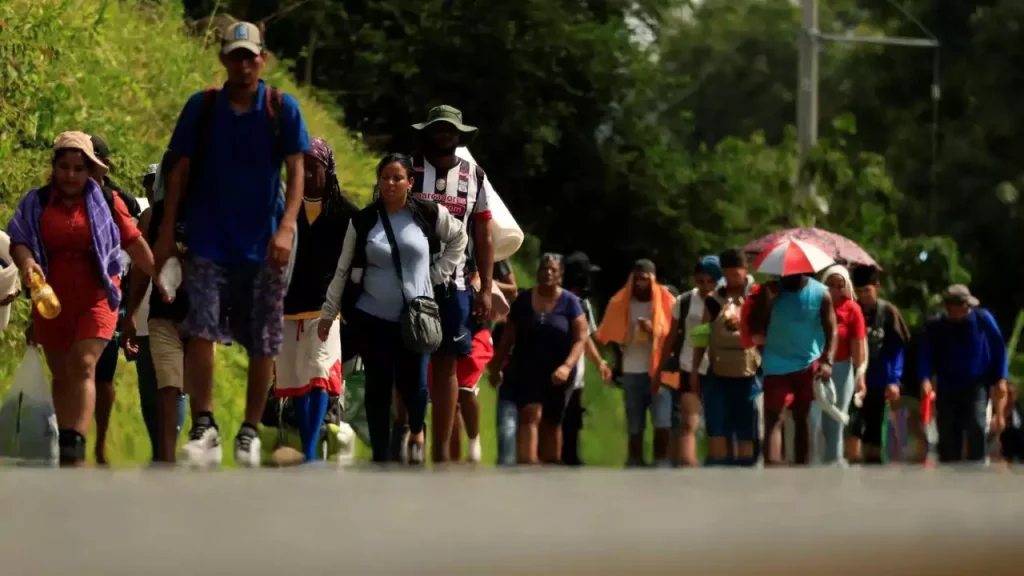BOSTON, Mass. – Refugee agencies in Massachusetts are racing against time to bring as many families as possible into the United States before Inauguration Day. With President-elect Donald Trump expected to implement stricter immigration policies, these organizations are expediting travel plans for hundreds of refugees, many of whom have waited years for this opportunity.
For people like Saynab Elmi, a Somali refugee who spent 11 years in an Ethiopian camp, the arrival in the U.S. was a bittersweet milestone. On December 18, she reunited with her daughter, Hayat Ahmed, at Logan Airport. It was an emotional moment after more than a decade apart.
“I started to cry when I saw her,” Elmi, 65, said through her daughter, who acted as an interpreter.
A Race Against Time
Local resettlement agencies, such as the International Institute of New England (IINE), are working tirelessly to meet deadlines. They fear that the new administration may halt refugee admissions or delay family reunifications indefinitely.
“We expect the doors to refugee resettlement to close, or at least temporarily pause, on January 20th,” said Xan Weber, senior vice president of IINE.
To address the urgency, IINE committed to resettling 308 refugees in Massachusetts by Inauguration Day. By Thursday, 188 people had arrived, and plans for 35 more were underway. However, the group faces setbacks, including canceled flights and logistical challenges.
“We’re deeply concerned about the families waiting for loved ones to arrive,” Weber said. “We don’t want to be the ones delivering the heartbreaking news that their family members can’t come.”
Challenges of Refugee Resettlement
Refugees go through an exhaustive process before arriving in the U.S., including security checks, medical clearances, and years of waiting in camps. Despite this, logistical and financial challenges remain significant hurdles.
For instance, Lino Covarrubias, CEO of Jewish Family Service of Metrowest, noted that housing is a persistent issue.
“Our goal was to resettle approximately 25 families before January 20,” Covarrubias said. “But housing is the biggest challenge in this area. Families may have to stay in hotels, with host families, or in rental units temporarily.”
Personal Stories of Hope and Struggle
For refugees like Elmi, the journey to America marks a fresh start, but it is not without sacrifices. Elmi reunited with her daughter and one son but left other family members behind.
Her daughter, Ahmed, had applied for the entire family through the refugee reunification program. However, only a few members were approved to travel.
“I was scared when I heard Trump was coming back,” Elmi said. “When they said I could go to America, I thought, ‘God, thank you.’”
Others, like Saw John Bright, an IINE staff member and political refugee from Burma, are still waiting for family members to join them. Bright’s relatives were cleared to travel in December but remain stranded in a camp on the Thai-Burmese border.
“They got a green light from the U.S., but I don’t know why they can’t travel yet,” Bright said. “Back in our country, there’s so much violence and fighting. I worry they’ll stay stuck there.”
Financial Strains on Resettlement Agencies
Refugee resettlement is not just a logistical challenge—it’s also a financial one. Each refugee is allotted $3,000 in federal funds to cover their needs for three months, including housing and administrative costs.
However, agencies like IINE estimate they need an additional $3,000 to $4,000 per refugee to bridge the gap. These funds are essential to support families as they settle into their new lives.
State Support and Coordination
The state’s Office of Refugees and Immigrants (ORI) has stepped in to support resettlement efforts. This includes expediting contracts and improving coordination between agencies.
“We’ve been working closely with our partners to provide the tools, information, and resources needed to support refugees in Massachusetts,” said ORI spokesperson Olivia James.
This collaboration has helped resettlement agencies navigate the tight deadlines and challenges posed by the political transition.
Uncertain Future for Refugees
The fate of refugee admissions in the U.S. remains uncertain under the new administration. During his first term, Trump imposed significant restrictions on refugee programs and reduced funding, raising fears of similar actions in the coming months.
Despite the challenges, refugee agencies remain committed to their mission. They are not only focused on resettling families but also on providing them with the support they need to thrive.
For families like Elmi’s, the chance to reunite in America is a dream come true. But for others still waiting in camps around the world, the future is fraught with uncertainty.
Disclaimer – Our editorial team has thoroughly fact-checked this article to ensure its accuracy and eliminate any potential misinformation. We are dedicated to upholding the highest standards of integrity in our content.





More Stories
Race Against Time: Refugee Groups Rush to Bring Families to the U.S. Before Inauguration Day
Race Against Time: Refugee Groups Rush to Bring Families to the U.S. Before Inauguration Day
Race Against Time: Refugee Groups Rush to Bring Families to the U.S. Before Inauguration Day